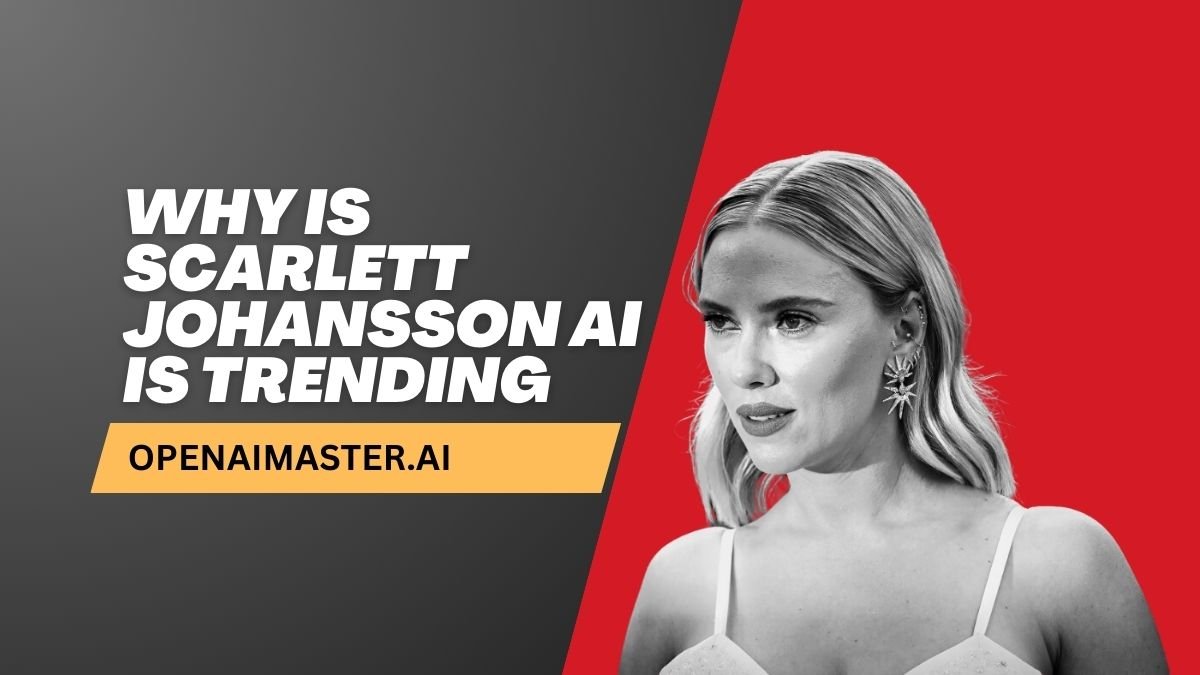Introduction
The intersection of AI and entertainment has long been a subject of fascination and speculation. From Johansson’s iconic role as an AI assistant in the 2013 film “Her” to the groundbreaking advancements in voice synthesis, the line between reality and fiction has become increasingly blurred. This controversy not only highlights the potential for AI to infringe on personal rights and creative works but also underscores the urgent need for clear regulations and ethical guidelines in the realm of voice cloning and AI development.
What is Scarlett Johansson AI?
Scarlett Johansson AI refers to the controversy surrounding the alleged use of her voice by OpenAI in their AI assistant, “Sky,” without her consent. The dispute began when OpenAI CEO Sam Altman approached Johansson in September 2022, asking her to lend her voice to their AI system. Johansson declined the offer for personal reasons.
However, upon the release of the “Sky” assistant, Johansson discovered that its voice sounded strikingly similar to her own, prompting widespread comparisons to her role in “Her.” Johansson has since hired legal counsel and sent letters to OpenAI demanding an explanation of how the voice was created, threatening legal action if it was intentionally modeled after hers.
Why is Scarlett Johansson AI Trending?
The Scarlett Johansson AI controversy has gained significant traction due to its far-reaching implications and the high-profile nature of the parties involved. Several factors have contributed to its trending status:
- Celebrity Involvement: Johansson’s status as a Hollywood A-lister and her iconic portrayal of an AI assistant in “Her” have amplified the public’s interest in this case.
- Ethical Concerns: The controversy has sparked discussions about the ethical use of AI and the protection of intellectual property and personal likenesses, raising concerns about the potential misuse of AI to replicate voices and likenesses without consent.
- Legal Implications: Legal experts suggest that Johansson could invoke right to publicity laws, which protect identifying features of a person from being used without their permission. This case could set a precedent for how such disputes are handled in the future.
- Industry Impact: The Screen Actors Guild-American Federation of Television and Radio Artists (SAG-AFTRA) has used the incident to advocate for stronger federal rights to protect against the misappropriation of voices and likenesses by AI companies, highlighting the broader industry implications.
- Public Outcry: The public and media have widely discussed the implications of this case, drawing parallels to Johansson’s role in “Her” and raising concerns about the potential for AI to infringe on personal rights and creative works.
Ethical and Legal Considerations
The Scarlett Johansson AI controversy has brought to the forefront several ethical and legal considerations that must be addressed as AI technology continues to advance:
Right to Publicity
Legal experts suggest that Johansson could invoke right to publicity laws, which protect identifying features of a person from being used without their permission. Past cases, such as those involving Bette Midler and Tom Waits, have set precedents for celebrities winning lawsuits over similar-sounding voices used without consent.
Ethical Concerns
The controversy underscores the ethical challenges of voice cloning technology. Companies like Resemble AI and BeyondWords emphasize the importance of consent and ethical guidelines to prevent misuse and protect individuals’ rights. As AI systems become more sophisticated, the potential for misuse and infringement on personal rights increases, highlighting the need for robust ethical frameworks.
Consent and Privacy
The issue of consent and privacy is at the heart of this controversy. While AI companies may have the technical capability to recreate voices, the question remains whether they have the legal and ethical right to do so without explicit consent from the individuals whose voices are being replicated.
Intellectual Property Rights
Beyond personal likenesses, the Johansson case also raises questions about the protection of intellectual property rights in the AI era. As AI systems become more capable of replicating creative works, there is a need for clear guidelines and regulations to safeguard the rights of artists, writers, and other creative professionals.
Industry and Public Reaction
The Scarlett Johansson AI controversy has resonated deeply within the entertainment industry and the public at large:
Industry Impact
The Screen Actors Guild-American Federation of Television and Radio Artists (SAG-AFTRA) has used the incident to advocate for stronger federal rights to protect against the misappropriation of voices and likenesses by AI companies. The union recognizes the potential threat posed by AI to its members’ livelihoods and is actively pushing for legislative action.
Public Outcry
The public and media have widely discussed the implications of this case, drawing parallels to Johansson’s role in “Her” and raising concerns about the potential for AI to infringe on personal rights and creative works. The controversy has sparked debates about the ethical boundaries of AI and the need for greater transparency and accountability in the development of these technologies.
Conclusion
The Scarlett Johansson AI controversy has brought to light the urgent need for clear regulations and ethical guidelines in the use of AI, particularly concerning the replication of voices and likenesses. As AI technology continues to advance at a rapid pace, it is crucial that we address these issues proactively to protect individuals’ rights and maintain public trust.
This case serves as a wake-up call for the industry to prioritize ethical considerations and establish robust frameworks to govern the use of AI in a responsible and transparent manner. By fostering open dialogue and collaboration between stakeholders, including artists, technologists, legal experts, and policymakers, we can navigate the complex landscape of AI and ensure that technological progress aligns with our moral and ethical principles.
The Scarlett Johansson AI controversy is a reminder that while AI holds immense potential, it also carries significant risks and challenges that must be addressed head-on. By striking the right balance between innovation and ethical responsibility, we can harness the power of AI while safeguarding the fundamental rights and interests of individuals and society as a whole.

